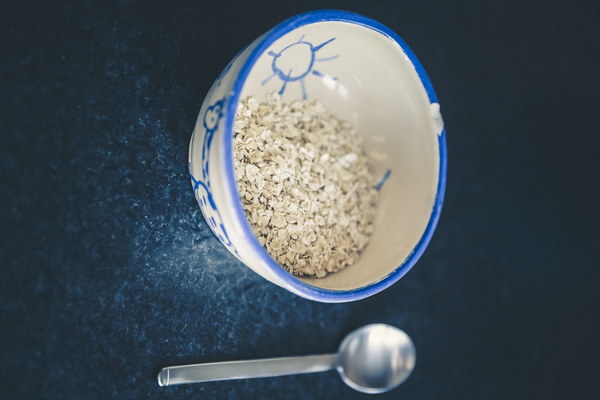Nurturing Your Babys Stomach and Spleen in the First Half Year A Comprehensive Guide
Introduction:
The first half year of a baby's life is a crucial period for their growth and development. During this time, it is essential to focus on nurturing their stomach and spleen, as these organs play a vital role in digestion and overall health. In this article, we will discuss practical tips and dietary recommendations to help you ensure your baby's stomach and spleen are well-cared for during the first half year.
1. Breastfeeding: The Ideal Source of Nutrition
Breastfeeding is the most natural and beneficial way to nourish your baby's stomach and spleen. Breast milk contains all the necessary nutrients, antibodies, and enzymes to support your baby's digestive system. Ensure that you breastfeed your baby on demand, as this will help establish a healthy feeding pattern and promote proper digestion.
2. Introducing Solids: A Gradual Process
Around 4-6 months of age, it is time to start introducing solid foods into your baby's diet. Begin with single-ingredient, pureed foods such as rice cereal, oatmeal, or single-ingredient vegetables and fruits. This allows your baby's digestive system to adjust to new textures and flavors. Gradually introduce a variety of nutritious foods, ensuring that your baby's stomach and spleen have time to adapt.
3. Choosing the Right Foods

To support your baby's stomach and spleen, it is important to choose the right foods. Here are some dietary recommendations:
a. Whole grains: Foods like oatmeal, brown rice, and quinoa are rich in fiber and can help regulate your baby's digestion.
b. Sweet potatoes: This nutrient-dense vegetable is easy to digest and provides essential vitamins and minerals.
c. Green vegetables: Broccoli, spinach, and kale are great sources of fiber, vitamins, and minerals that support a healthy digestive system.
d. Fruits: Offer your baby a variety of fruits such as apples, pears, and bananas, which are high in fiber and essential nutrients.
e. Lean proteins: Introduce lean proteins like chicken, turkey, and tofu, which are easy to digest and rich in essential amino acids.
4. Avoiding Certain Foods
Some foods can be challenging for your baby's stomach and spleen to digest. Here are a few to avoid:
a. Highly processed foods: These foods can be difficult to digest and may contribute to digestive issues.
b. Spicy and greasy foods: These foods can irritate your baby's stomach and spleen, leading to discomfort and digestive issues.
c. Citrus fruits: These can be harsh on your baby's delicate stomach and spleen.
5. Proper Feeding Techniques
To ensure your baby's stomach and spleen are well-nourished, follow these feeding techniques:
a. Feed your baby at a relaxed pace, allowing them to finish their meals without rushing.
b. Offer small, frequent meals rather than large, infrequent ones to prevent overfeeding and indigestion.
c. Avoid overfilling your baby's stomach, as this can lead to discomfort and digestive issues.
6. Monitoring Your Baby's Digestive Health
Keep a close eye on your baby's digestive health by observing the following signs:
a. Regular bowel movements: Your baby should have at least one bowel movement per day.
b. No signs of discomfort or pain during feeding or digestion.
c. No signs of malnutrition or weight loss.
Conclusion:
Nurturing your baby's stomach and spleen in the first half year is crucial for their overall health and development. By following these practical tips and dietary recommendations, you can help ensure that your baby's digestive system remains strong and healthy. Remember to consult with your pediatrician for personalized advice and guidance throughout your baby's feeding journey.









